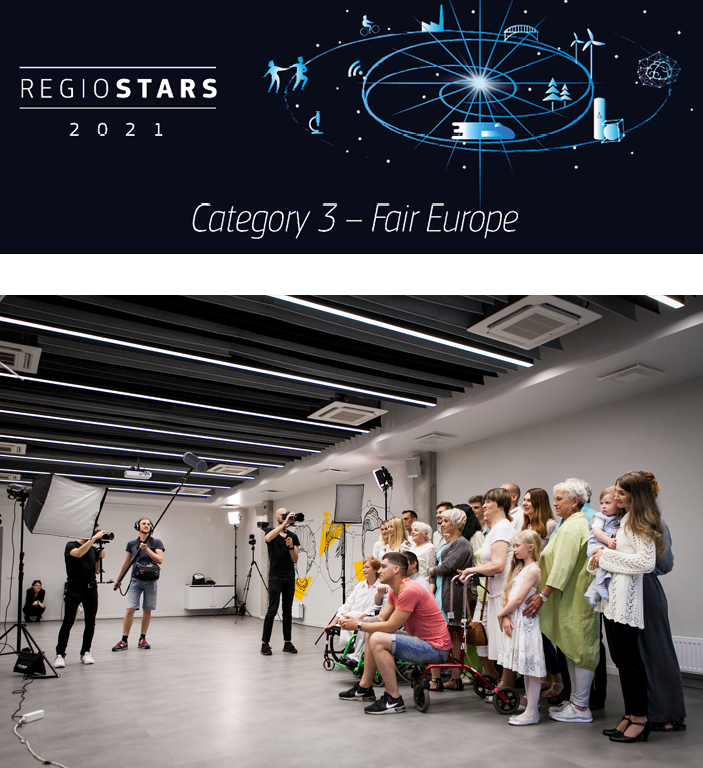Implemented across all 60 Lithuanian municipalities, the ‘I am your neighbour. Do not sort me’ project aimed to dispel stereotypes about beneficiaries of social housing among municipal officials and the public. It encouraged public authorities to foster integration by housing tenants in buildings with privately owned flats, rather than isolating them in social housing blocks.
Lithuanian project reduces prejudice against residents of social housing
- 19 September 2021
‘It was an emotionally powerful campaign. In six-months of activities, we went from total resistance from local communities to sensitivity and real dedication to socially vulnerable groups. We succeeded in increasing public tolerance towards residents of social housing and in encouraging municipalities to choose policies favouring integration.'
To encourage acceptance and dispel stereoptyes, residents of privately owned flats and social housing were brought together to get to know one another. The participants said they would like to meet more social housing residents. The meeting was filmed and a video about it was aired on national television and distributed on social media, where it has been viewed over 200 000 times.
Outdoor advertising was set up in areas with high levels of prejudice against social housing occupants. Photographs depicting the daily lives of people in social housing were exhibited in Vilnius. A public relations campaign was conducted in national and regional media, along with training seminars for municipal officials.
Negative views
A preliminary study found that 48 % of Lithuanian municipal officials supported placing social housing in conventional apartment buildings, while 59 % associated social housing tenants with problems such as alcohol abuse.
Leaflets were delivered to 8 000 apartments in the 60 municipalities to ask residents about having social housing in their buildings. Over 29 % of respondents were opposed. A map was created to show each area’s tolerance level.
Changing minds
Thanks to the project, the number of municipal officials recognising the benefits of placing social housing in conventional apartment buildings increased from 48 % to 62 %, well above the three-percentage-point rise originally targeted.
The numbers of those who associated social housing occupants with problems like alcohol abuse and who would react negatively to having social housing in their neighbourhoods dropped from 59 % to 42 % and 48 % to 39 % respectively.
Beneficiaries
‘When my story appeared in public during this project, people didn’t condemn it. We got a lot of support. I do not regret opening my heart. It helps the public understand that no one is protected from adversity, and the inhabitants of social housing cannot be pushed to the margins.’
Oksana Ševeliova, who has lived in social housing with her three children for over 12 years
‘No one wanted to rent a home to a couple with a disability. Now we get up in the morning and still want to pinch ourselves to be sure that we have a home. It may seem incomprehensible to a healthy person, but remember the recent quarantine? Most people complain how badly staying at home, job losses, poor health and similar circumstances affected them. We feel this way almost constantly, so an apartment that meets our needs has brought us a great deal of simple human joy.’
Vytautas and Rūta Vaitekučiai, campaign participants
Total investment and EU funding
Total investment for the project “I am your neighbour. Do not sort me” was EUR 71 000, with the EU’s European Social Fund contributing EUR 60 350 through the “Operational Programme for EU Structural Funds Investments” for the 2014-2020 programming period. The investment falls under the priority “improve access to social housing and quality of health care services for people at risk of poverty or social exclusion”.

